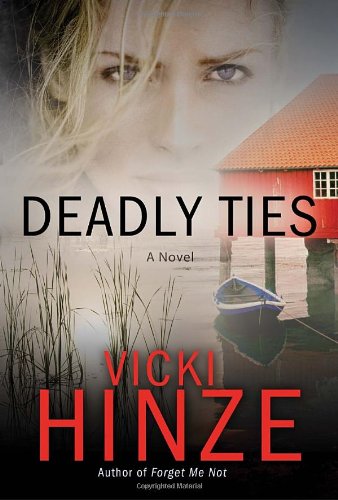Writing–Errors and Fears
September 22, 2011 Leave a comment
 The opportunity for errors abound in life, and of course, that extends to your career. How well you identify and define them, when you identify and define them, has a direct relationship on your ability to resolve the potential problem areas–before they become errors or mistakes that you must live with forevermore.
The opportunity for errors abound in life, and of course, that extends to your career. How well you identify and define them, when you identify and define them, has a direct relationship on your ability to resolve the potential problem areas–before they become errors or mistakes that you must live with forevermore.
Unfortunately, we too often zing along, ignoring warning bells (or doing our part to resolve them and then relying on the next person in our personal chain to do their part without verifying that they have) and the window of opportunity to nip a potential challenge in the bud before it becomes a problem is missed.
A couple of examples: You submit your work to an agent, who supposedly is submitting your work. You don’t have anything verifying that, and later learn the agent hasn’t submitted at all. Whose mistake is that?
Well, the agent’s word that the submission is done should be (and often is) sufficient, but it happens too often that it isn’t to assume it. Reputable agents know their word is their bond. But if a formerly reputable agent fails to be honest with you, or fails to do his or her part, who pays the penalty?
The author. And the author loses the time and can’t reclaim it. Considering that the time can be a year or even more, that lost potential is nothing at which to sneeze. In the past year, I’ve been approached by five authors who have been in the center of this challenge.
The moral of this example: Verification is part of your job. Never work with someone you can’t trust. But even the most trustworthy person in the world is capable of human error. Verify. It’s your work, your career and part of your job to monitor the process closely enough that you know what is happening with your work.
Another example is one I’ve seen too often to count. And that is, an author is with a publisher, loses an editor and is struggling with an ill-fitting new editor. The author doesn’t want to leave the publisher but everything s/he is doing is being rejected. S/he can’t please the new editor.
It’s interesting to note that in these cases, the author is well aware of the challenge but so fears being at loose ends when changing houses that s/he willingly bangs his/her head against the proverbial wall, trying to please the new editor (which simply does not happen). Often this attempt to please goes on for an extended time–a year, two years, and sometimes longer. Time during which the writer’s doubt that s/he can produce a publishable manuscript grows and his/her confidence in her writing abilities dwindles.
The moral of this example: do not write to please an editor. Write the stories you must write. The ones that nag you, that wake you up in the middle of the night. The stories that haunt you if you do not write them. Those stories contain the magical element of enthusiasm and interest that permeates a work and infuses it with strength. It can’t be faked, and without it, publishing potential is crippled.
Look at it this way. You’re being rejected anyway. Why not be rejected on a project you’re crazy about versus one you’re writing to please someone else? At least if your beloved project is rejected, you’ve loved it. That can’t be said for the one written to another’s specifications.
There are two things we really need to look at closely in these problem area situations.
1. Warning Bells.
2. Fear.
Regardless of by what name you call those warning bells–intuitive nudges, hunches, gut instincts, divine shoulder taps–they are early-warning indication systems. Ones that sound the alarm when something has tripped it, and to spare ourselves challenges that become mistakes, we need to perk up and pay attention, and then act on them. Even the best alarm system in the world only notifies. It’s up to the person notified to act to prevent loss and/or damage.
Bottom-line advice: Heed your hunches.
Fear is a mean taskmaster. It can cripple, debilitate, destroy. It has as much power as we give it–no more, but no less–and there is but one way to overcome it: courage.
You can run or hide, but fear will find you. You can play ostrich and bury your head in the sand, but when you do, your backside is exposed and up in the air, just a perfect target for getting kicked–and it will.
You’re going to face that fear whether or not you want to do it, so why not face it on your own terms?
It’s impossible to outrun, outwit or otherwise avoid fear (or any other merciless demon) when it’s in your own mind. Accept it. Unless you deal with fear constructively, it remains in you, it grows, and you’ll never be free of it. Enslaved is no way to live.
Bottom-line advice: Recognize fear but embrace courage.
Fear debilitates.
Courage liberates.
Blessings,
Vicki
Vicki Hinze
c 2006
































































You must be logged in to post a comment.